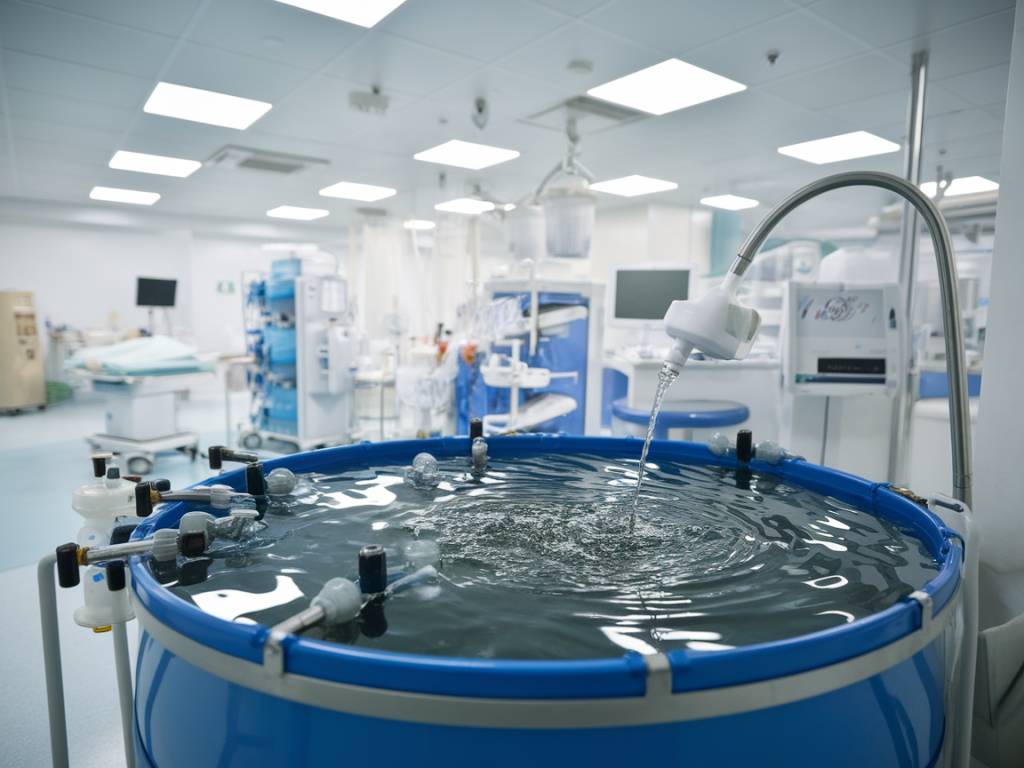Water recycling technology, though often discussed in terms of its environmental benefits, is quietly making waves in the healthcare industry. As hospitals and clinics strive to provide top-notch care while maintaining sustainable practices, the integration of innovative water solutions is becoming increasingly essential. But how exactly is this technology revolutionizing healthcare? Let’s dive deeper into this fascinating topic.
The Importance of Water in Healthcare
In the medical world, water is not just a utility—it is a vital resource. From sterilizing equipment to patient hydration, water plays a crucial role in every corner of a healthcare facility. Given this dependency, an efficient water management system is a cornerstone for hospital operations. As demands increase, so does the need for sustainable practices.
The Concept of Water Recycling
Water recycling is the process of treating wastewater to make it suitable for reuse. In healthcare, this means transforming wastewater from processes like sterilization and laundry into a resource that can be used again for non-potable functions. This not only conserves water but also reduces operational costs—something administrators and policymakers can certainly appreciate.
Technological Innovations Making a Difference
The advent of advanced filtration systems and innovative water treatment technologies is paving the way for safer and more efficient water recycling in healthcare. These systems can remove contaminants and pathogens with remarkable precision. Let’s take a closer look at some of the standout technologies:
- Membrane Filtration: Utilizes physical barriers to separate contaminants from water, ensuring high purity standards.
- Ultraviolet (UV) Treatment: Employs UV light to neutralize harmful microorganisms, making recycled water safer for reuse.
- Ozone Treatment: Uses ozone gas for effective disinfection, leaving no harmful residues.
Real-World Applications in Healthcare
Hospitals globally are beginning to incorporate these technologies to capitalize on both economic and environmental benefits. For example, some facilities are using recycled water for landscape irrigation, cooling systems, and even flushing toilets. This not only reduces freshwater use but also helps facilities comply with stringent environmental regulations.
An inspiring story comes from a hospital in South Africa, which adopted a water recycling system during a severe drought. The facility managed to cut its water consumption by 50%, setting a standard for others to follow. Isn’t it incredible how necessity can drive innovation?
Impact on Public Health and Policy
Water recycling in healthcare isn’t just about cost savings and environmental compliance—it’s also about enhancing public health. By reducing reliance on freshwater sources, hospitals can ensure more water is available for communities, thus supporting broader public health initiatives.
At the policy level, governments are recognizing the need for sustainable water practices in healthcare. Incentives and guidelines are being established to encourage the adoption of water recycling technologies, further propelling this innovative shift.
Challenges and Future Prospects
Despite its advantages, the journey towards widespread adoption of water recycling in healthcare is not without challenges. Concerns over contamination, high initial setup costs, and the need for specialized personnel can hinder progress. However, as technology advances and awareness increases, these barriers are likely to diminish.
The future holds promising possibilities, with ongoing research aimed at enhancing the efficiency and scalability of water recycling systems. What if, in the near future, every healthcare facility operated with a zero-water waste policy? The potential impact on both the environment and healthcare sustainability is profound.
In conclusion, as healthcare facilities continue to seek innovative solutions to enhance efficiency and sustainability, water recycling technology stands out as a game-changer. Not only does it address pressing environmental concerns, but it also sets the stage for a more sustainable future in healthcare—a win-win for both patient care and the planet. By embracing these innovations, we’re not just preserving a precious resource; we’re investing in a healthier future for all.

